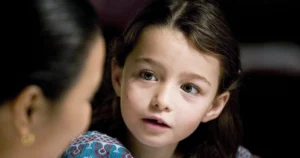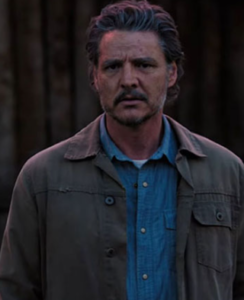‘Geetanjali’ was certainly a meteor character, women felt liberated by the film: Girija Shettar
Bangalore, Nov 13, (PTI) About 34 years ago, when Girija Shettar played the role of the effervescent Geetanjali who walked around town cheekily confronting her male admirers with “c’mon then, let’s run away”, her insouciance unwittingly rewrote the existing ‘code of conduct’ for a generation of women.
“Geetanjali was certainly a meteor character. The influence that she had on women is something I have heard often also from men who tell me they felt liberated by the film,” Shettar tells PTI in an email interaction.
Not surprisingly, instant stardom followed ‘Geethanjali’, celebrated filmmaker Mani Ratnam’s only Telugu film. It also co-starred Telugu superstar Nagarjuna.
The success of ‘Geethanjali’ led to another seminal film for Shettar, this time in Malayalam and with Mohanlal director Priyadarshan’s ‘Vandanam’. Her character Gaatha again won the hearts of people and it looked like Shettar was all set for a long career in the film industry.
But fate had other plans for this half-Kannadiga, half-English actor. Shortly after finishing ‘Hrudayanjali’, her second Telugu film directed by A Raghurami Reddy, which, incidentally, was released almost a decade later in 2002, winning critics’ hearts and three state awards, she had to go back to London for personal reasons.
Shettar, in fact, had to leave in the middle of shooting Mansoor Khan’s ‘Jo Jeeta Wohi Sikander’, co-starring Aamir Khan. Eventually, Ayesha Jhulka played the role of Anjali that Shettar was supposed to have portrayed.
It was obviously not an easy choice to make for someone who was drawn in by the magic of films. Shettar says she even stopped watching Indian films for a long time for fear of triggering deep-seated regrets.
“Films had such a profound influence on my inner world when I was growing up. Films and the ballet lit a fire within me. They were mesmerising and immersive experiences that stoked the imagination and made the spirit soar,” says Shettar.
Perhaps it is her love for all things spiritual, Shettar knew that when life gives lemons, it is best to make lemonade. Staying positive and true to herself lead to a different kind of career that of a journalist says Shettar, who recently published a collection of Haiku poems, titled ‘This Year, Daffodils’.
Now, after almost 25 years, Shettar is back to acting. She plays a single mother in the Kannada film ‘Ibbani Tabbida lleyali’, being produced by Rakshit Shetty’s Paramvah Studios and directed by Chandrajith Belliappa.
“I didn’t plan this film. The opportunity came in on its own timing. I had felt it in the air for a long time, but I had no idea when it would come,” says Shettar.
She says the biggest reason why she agreed to the film is because she identified with the character, Madhumita. “Because I had had similar experiences in the very recent past. Also, I found the story unique and charming, and the dialogue intelligent,” adds Shettar.
Shettar says although she had missed being a part of films and was deeply excited to return to it, she also had a concern. “If Madhumita is not well received, it may adversely affect the legacy of ‘Geetanjali’ and ‘Vandanam’, which have given audiences so much pleasure through the years. But, ultimately, I don’t believe that. Those film characters have a life of their own,” says Shettar.
Shettar says her idea of an ideal role has not changed over the years and that she is still drawn to positive characters who have humour and strength even in the face of challenges.
“My ideal role is one whose life, emotions and thoughts I can feel and get into. Depth of feeling and complexity of thought are important elements which add truthful nuance,” says Shettar.
Interestingly, Shettar thinks women characters of today are not as strong and characterful as they were. “In films, especially in English-language films that I watched growing up, from, say, the 1950s, the female characters are full of wit, intelligence, strength and independence of character to a level not matched by today’s female characters.
“Perhaps films simply reflect the world as it is today — maybe we women today are not as characterful as women in the past. I think elements of amorality, victimisation, material greed and aggressive selfishness have grown too strong in the culture. They erode the spirit and make us less unique and interesting,” says Shettar.
Although Shettar says she had found the attention she got slightly uncomfortable, she believes that films and film characters are powerful energy gifts to the world.
“I loved and still do love corresponding with people who love my films. Fans of ‘Geetanjali’ in particular have very loving hearts. They are so warm and sparkly. Had it not been for ‘Geetanjali’ I would never have known such beautiful people, felt such love. It was a huge blessing,” says Shettar.
Times may have changed and social media may be altering the way we communicate, but Shettar says the responsibilities of a star remain the same: “To be a positive role model or at least not a harmful one.”
She adds, “I think everyone who uses social media should be conscious of how, and how much they use it. Used wrongly it can negatively manipulate the brain and emotional state. We should also consider the value (and energy) we are placing into something that scrolls into an infinite void.






